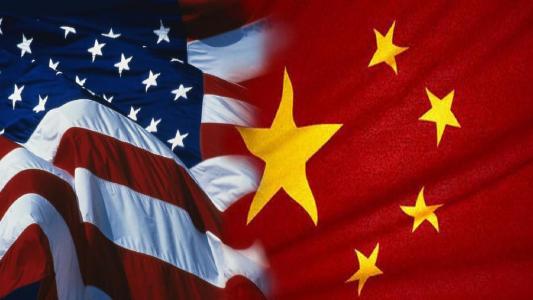BEIJING – In a bold and calculated response to the United States’ sweeping tariff hikes on Chinese goods, President Xi Jinping’s administration has rolled out two major retaliatory measures that could reshape global trade flows and send shockwaves through key American industries.
As U.S.-China tensions intensify over Washington’s imposition of a staggering 145% tariff on Chinese imports, Beijing has taken strategic aim at two highly sensitive sectors: critical minerals and aerospace. These moves mark a significant shift in China’s retaliatory posture, moving beyond tit-for-tat tariffs to leverage its dominant role in global supply chains and high-value industrial sectors.
1. Rare Earth Export Controls: China Weaponizes Mineral Dominance
China, which controls over 80% of global rare earth processing capacity, has imposed export controls on a range of strategic minerals and magnetic materials essential for manufacturing electric vehicles, wind turbines, advanced electronics, and military equipment. The export restrictions are expected to target neodymium, dysprosium, and terbium — minerals vital to clean energy and defense supply chains.
This decision comes amid rising global concern about resource security and is widely seen as an effort to pressure Washington by exploiting a key vulnerability in the U.S. industrial base.
“This is a clear message: China will no longer passively absorb economic blows,” said Dr. Mei Huang, trade analyst at the China Development Institute. “Beijing is now using targeted leverage to reshape the battlefield.”
In response, U.S. President Donald Trump has instructed the Department of Commerce to devise strategies to increase domestic mining and processing of critical minerals, including potential subsidies, fast-tracked permits, and partnerships with allied countries such as Canada and Australia.
2. Boeing Freeze: China Grounds Future Deliveries
In a parallel move with equally far-reaching implications, China has instructed its airlines to halt further deliveries of Boeing aircraft and suspend purchases of aircraft-related components from U.S. manufacturers. The decision, first reported by Bloomberg News, comes as a direct retaliation against U.S. tariffs and is expected to affect aircraft deliveries scheduled between 2025 and 2027.
The Chinese government has reportedly notified Air China, China Eastern, and China Southern — the country’s top three carriers — to pause all upcoming Boeing acquisitions. These carriers had collectively planned to take delivery of 179 Boeing jets over the next three years.
The ban has sent ripples through the global aviation industry, with Boeing shares dipping 0.5%, and suppliers such as Howmet Aerospace facing mounting uncertainty over long-term contract stability.
“This is a billion-dollar hit to an already strained industry,” said aviation analyst Julian Rhee. “Boeing’s reliance on the Chinese market has now become a geopolitical liability.”
Airbus, Boeing’s European rival, is likely to benefit, having already maintained a dominant position in China and insulated from U.S. trade actions.
Wider Economic Impact and Global Trade Repercussions
The twin actions signal that Beijing is prepared to escalate the trade war beyond tariffs, directly targeting critical sectors of the U.S. economy. Analysts warn that the disruption of supply chains for rare earths could stall the U.S. energy transition, while aerospace tensions may upend the commercial aviation balance, especially in Asia.
These developments could also trigger a broader decoupling in technology and defense supply chains, force multinational firms to reevaluate sourcing strategies, and further fuel global inflation as companies scramble to find alternative suppliers.
“China is weaponizing its economic interdependencies,” said Professor Linda Chu of the Hong Kong University of Economics. “We are witnessing a profound shift in how economic power is projected.”
As geopolitical lines harden and economic nationalism intensifies, the world is bracing for a prolonged confrontation that may redefine global commerce for years to come. (zai)

